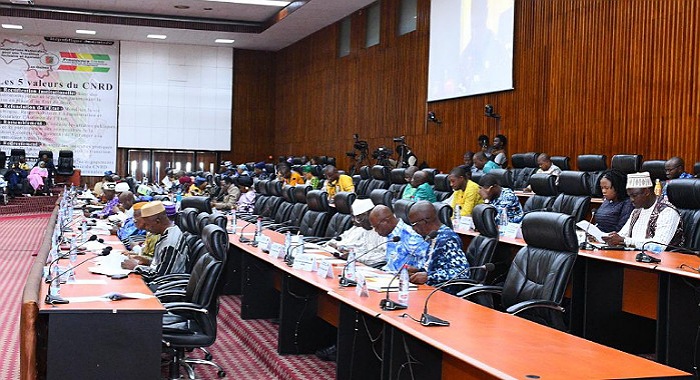On May 24, 2024, the National Transition Council adopted two financing agreements for the Health Security Program in West and Central Africa. The agreements had been signed in January between the Republic of Guinea and the International Bank for Reconstruction and Development (IBRD) and the International Development Association (IDA).
Addressing the national assembly, the Minister of Finance recalled the current challenges facing the health sector in Guinea.
“Health care financing is largely provided by households with 59.2% of current health expenditure, well above the 20% threshold set by the WHO. This indicates a high risk of exclusion of the poor from regular access to healthcare,” he explained.
Mourana Soumah also referred to the dependence and volatility of external funding, recalling that “external funding for the health sector in Guinea increased during the Ebola epidemic from 2014 to 2016, then fell sharply from 27% in 2016 to 14% and 11% in 2017 and 2019, respectively.”
For his part, the Minister of Health and Public Hygiene, Dr. Oumar Diouhé Bah, reviewed the progress made by Guinea in terms of health safety over the last six years.
“The effective management of recent epidemics (Covid-19, avian flu, Ebola, Lassa fever, Marburg, yellow fever and meningitis) highlights Guinea’s improved preparedness and response capabilities to public health emergencies,” he said.
However, Dr. Oumar Diouhé Bah also highlighted persistent challenges, notably in governance and training within the One Health platform, as well as stock-outs of essential medicines.
“That’s why this program emphasizes the importance of improving the health system, including the recruitment of human and animal health workers, diploma training in health, animal husbandry, environment, fisheries, the rehabilitation and construction of health care facilities (human, animal and environment), and investment in medical equipment, drugs and vaccines,” he added.
The West and Central Africa Health Security Program has been reviewed and adopted by the National Transition Council (CNT). It uses a multi-phase programmatic approach, and is worth a total of 106 million US dollars, including 90 million dollars in loans and 16 million dollars in grants.


